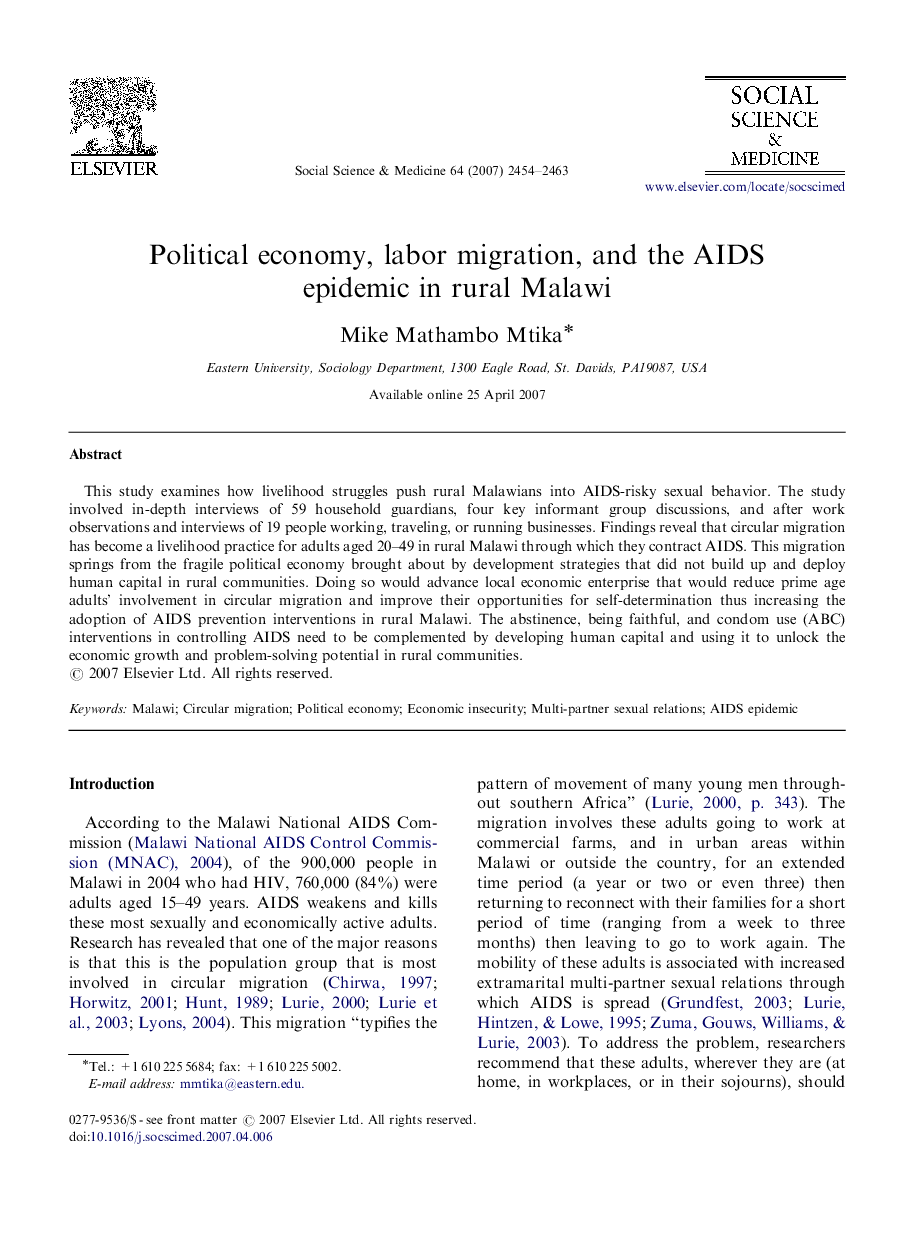| Article ID | Journal | Published Year | Pages | File Type |
|---|---|---|---|---|
| 953891 | Social Science & Medicine | 2007 | 10 Pages |
This study examines how livelihood struggles push rural Malawians into AIDS-risky sexual behavior. The study involved in-depth interviews of 59 household guardians, four key informant group discussions, and after work observations and interviews of 19 people working, traveling, or running businesses. Findings reveal that circular migration has become a livelihood practice for adults aged 20–49 in rural Malawi through which they contract AIDS. This migration springs from the fragile political economy brought about by development strategies that did not build up and deploy human capital in rural communities. Doing so would advance local economic enterprise that would reduce prime age adults’ involvement in circular migration and improve their opportunities for self-determination thus increasing the adoption of AIDS prevention interventions in rural Malawi. The abstinence, being faithful, and condom use (ABC) interventions in controlling AIDS need to be complemented by developing human capital and using it to unlock the economic growth and problem-solving potential in rural communities.
